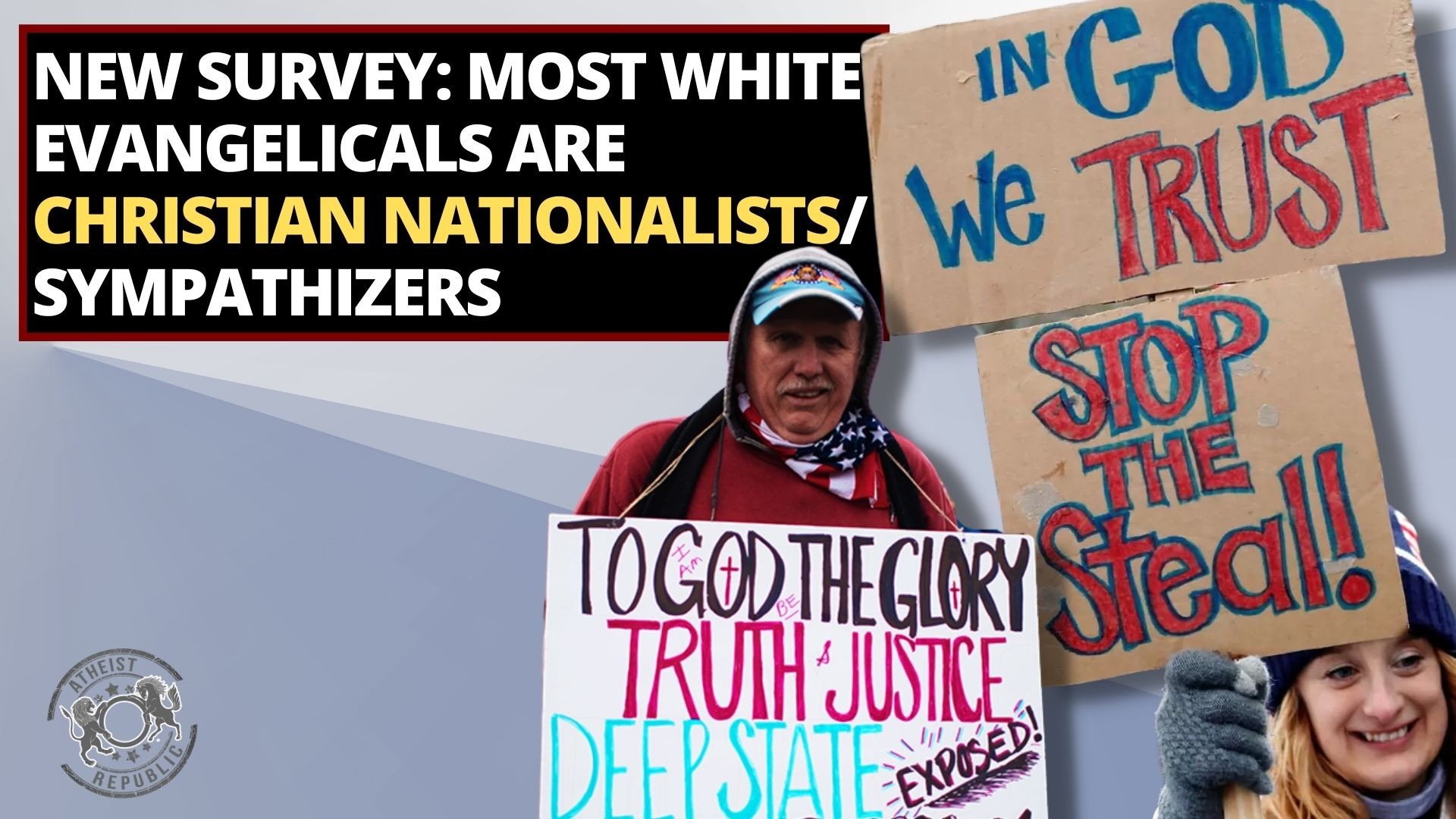
A new national survey released by the Public Religion Research Institute and Brookings Institution on February 8th reveals that around two-thirds of white evangelicals in the US and most Republicans are sympathetic or adhere to Christian nationalism.
Really interesting numbers here.
29% of Americans totally reject #ChristianNationalism.
29% are supporters, (10% very strong).
And about 39% lean away from CN.
For the record, the correct answer is "totally reject" Christian Nationalism. pic.twitter.com/u1SWplAiHq— Andrew L. Seidel (@AndrewLSeidel) February 8, 2023
The survey had a sample size of 6,212 Americans, making it the biggest yet to gauge the popularity and reach of Christian nationalism in the United States. It was conducted online between November and December last year and had a 1.6% margin of error.
It discovered that around 10% of all Americans are avowed Christian nationalists, also described as “adherents,” while 19% sympathize with the core tenets of the ideology.
Those sympathetic to CN also more likely to support political violence in order to "save our country." pic.twitter.com/ZXTcG990nW
— Andrew Whitehead (@ndrewwhitehead) February 8, 2023
Even though believers of Christian nationalism and their sympathizers are a minority in the United States, specific racial, political, and religious subgroups have a more significant share of people who adhere to and sympathize with the ideology.
Among religious groups, white Evangelical Protestants are more likely to adhere to or sympathize with Christian nationalism than other religious subgroups, with about 29% of white Evangelical Christians surveyed adhering to the ideology and 35% sympathizing with Christian nationalism.
Seven in 10 (71%) Christian nationalism adherents embrace so-called “replacement theory,” the idea that immigrants are “invading our country and replacing our cultural and ethnic background.”#ChristianNationalismhttps://t.co/HDFKiEs28N pic.twitter.com/dPGgKqfKZ3
— PRRI (@PRRIpoll) February 8, 2023
Concerning religious practice, Americans who attend religious services at least once a week or more are more likely to support or sympathize with Christian nationalism than those who seldom or never attend religious services.
As for racial subgroups, white Evangelicals are more likely to be Christian nationalists than black or Hispanic Evangelicals. Support for this ideology is also less among other racial and religious subgroups, such as Catholics, mainline Protestants, Jews, and religiously unaffiliated.
66% of #ChristianNationalism adherents believe that America has become “too soft and feminine”. @PRRIpoll pic.twitter.com/mWsDMsFqEw
— Rachel Laser (@rachelklaser) February 8, 2023
Republicans have a higher share of adherents and sympathizers than Democrats and Independents. In the same survey, 21% of Republicans are avowed Christian nationalists, while 33% sympathize with the ideology. They are likelier to trust Fox News and far-right news sources than mainstream media.
Proponents of Christian nationalism and their sympathizers also view former President Donald Trump more favorably than incumbent President Joe Biden, with about 43% of adherents and 26% of sympathizers having a very favorable view of Trump.
Nearly 6 in 10 QAnon believers are either Christian nationalism sympathizers or adherents (29%). The relationship btw QAnon beliefs & Christian nationalism is even stronger among white Americans.
NEW @PRRIpoll/@BrookingsGov study. #ChristianNationalismhttps://t.co/HDFKiErujf pic.twitter.com/BzGS5Mb37y— PRRI (@PRRIpoll) February 8, 2023
Sympathizers and adherents of Christian nationalists also tend to be older than the general population, with 13% of those identified as proponents being 65 and above and 23% of people 65 years and above sympathizing with Christian nationalism.
Christian nationalism has received significant attention over the years, especially after the January 6 riots that saw Trump supporters storm the US Capitol Hill after the 2020 presidential elections. Furthermore, Christian nationalists have an outsized influence in government despite being a minority, with politicians like Rep. Marjorie Taylor Greene and former President Trump proudly embracing the Christian nationalist label.
